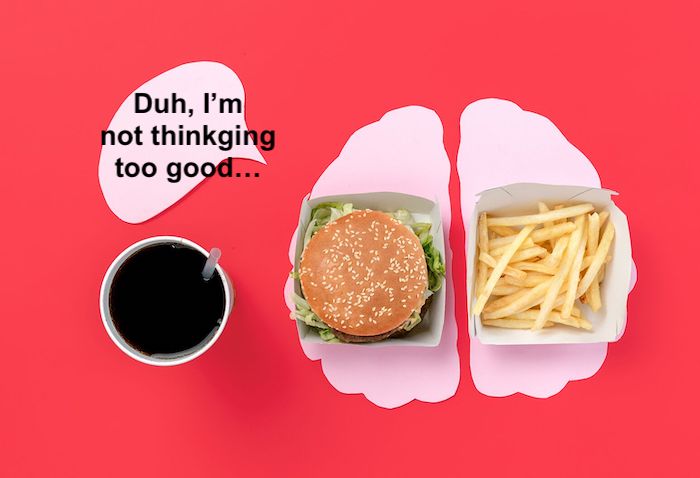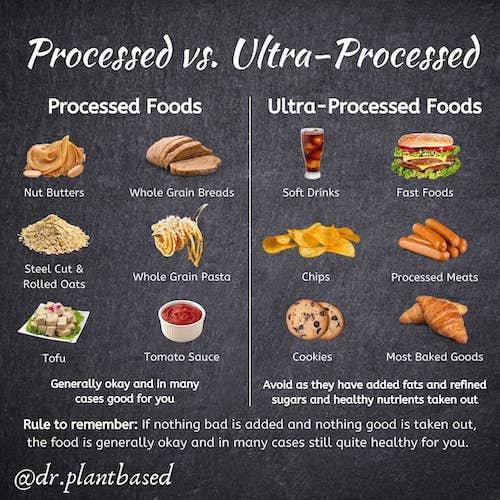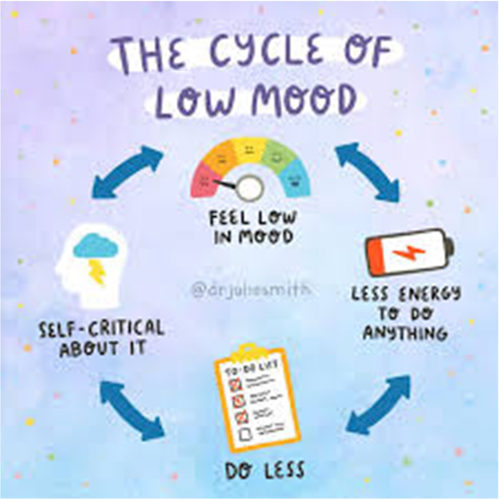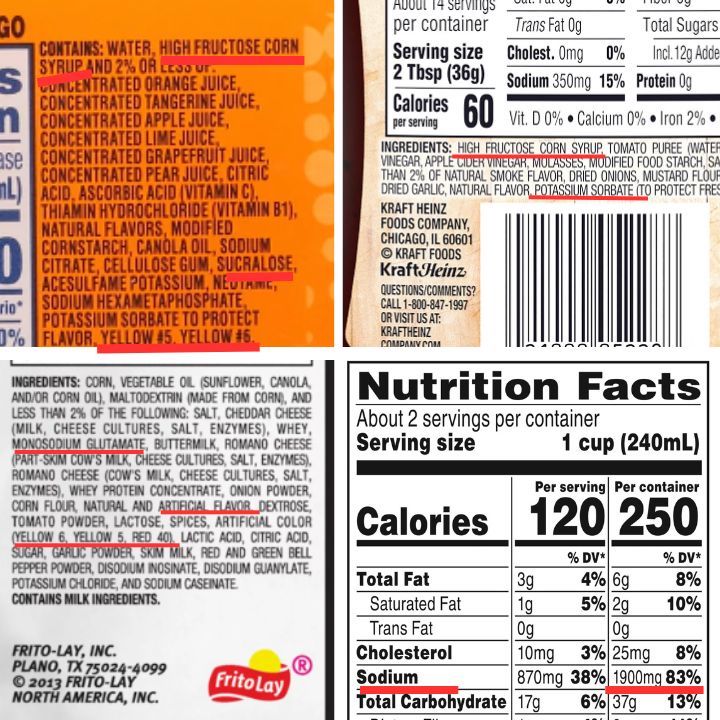How Ultraprocessed Foods Can Hurt Your Brain and Gut

Ultraprocessed foods can give you brain fog, impair your cognitive health and lead to several chronic diseases. Time to stop eating them, and turn to healthy alternatives.
Eating too much ultraprocessed foods is a slow but steady way to get sick. About 60 percent of the calories in the average American diet come from ultraprocessed foods, and the rest of the world is catching up.
Scientists have known for decades that consuming “foods” like many breakfast cereals, snack bars, frozen meals and packaged sweets, etc. is linked to unwanted health outcomes, such as increased risk of diabetes, obesity and even cancer.
And now there’s another notch to put in the ultraprocessed belt that’s whipping the health out of you — cognitive decline.
Yes, as you’ll soon see, recent studies point to yet another major negative to eating these often highly palatable, always convenient foods: They appear to have a significant, deleterious impact on our minds.
Research from the past decade shows that there’s a clear, positive correlation between the amount of ultraprocessed foods you eat and the probability of becoming depressed, anxious or cognitively compromised.
Scientists are still researching the details, but it’s clear that the overconsumption of these nefarious ultraprocessed foods can be harmful to your health, including your metal health.
Read on to learn what is known so far.
Contents: What is ultraprocessed food? The mental impact of ultraprocessed foods Why can ultraprocessed foods affect cognition and gut health? How to recognize the villain Common ultraprocessed foods and their substitutes Do you know how to spot ultraprocessed foods? Take the quiz!
What Is Ultraprocessed Food?
In 2009, researchers from Brazil developed a four-part scale for categorizing food based on its level of processing. The scale ranges from unprocessed and minimally processed foods, such as fruits, vegetables, rice, and flour, to processed foods, such as oils, butter, sugar, dairy products, some canned foods, and smoked meats and fish, and finally, ultraprocessed foods.
According to Eurídice Martínez Steele, a researcher in food processing at the University of Sao Paulo, Brazil, ultraprocessed foods contain ingredients that are rarely used in homemade recipes, including high-fructose corn syrup, hydrogenated oils, protein isolates, and chemical additives like colors, artificial flavors, sweeteners, emulsifiers, and preservatives. Today, this classification system is widely used by nutrition researchers.
Ultrprocessed foods are responsible for 70 percent of packaged foods sold in the United States. They are found predominantly in the frozen food aisles of grocery stores and on fast-food menus. Unfortunately, these foods are becoming increasingly popular, overwhelming healthier options in people’s diets across all socioeconomic groups.
Dr. Eric M. Hecht, an epidemiologist at the Schmidt College of Medicine at Florida Atlantic University, describes ultraprocessed foods as being formulated to be highly palatable and satisfying, to the point of being almost addictive. However, he warns that manufacturers make these products less like real food in order to enhance their flavor and appeal. And I might add, shelf life.
The Mental Health Impact of Ultraprocessed Foods
In 2022, a study conducted on over 10,000 adults in the United States found a connection between highly processed foods and “low mood”, commonly defined as “an emotional state characterized by sadness, anxiety, low self-esteem, tiredness, and frustration”.
The more ultraprocessed foods participants in the study consumed, the more likely they were to report mild depression or feelings of anxiety. “Eating 60 percent or more of their calories from UPFs led to a significant increase in mentally unhealthy days,” said Dr. Hecht, the study’s author. Although the study doesn’t prove causation, it suggests an association between ultraprocessed food consumption and low mood.
Unsurprisingly, then, recent research has revealed a link between high ultraprocessed food consumption and cognitive decline. A ten-year study that followed almost 11,000 Brazilian adults found that those who consumed ultraprocessed foods had worse cognitive function, including the ability to learn, remember, reason and solve problems. “People who consumed over 20 percent of their calories from UPFs had a 28 percent acceleration in cognitive decline,” stated Natalia Gomes Goncalves, a professor at the University of São Paulo Medical School and the study’s lead author.
It’s plausible that consuming a healthy diet can offset the detrimental effects of ultraprocessed foods. The Brazilian researchers found that adhering to a healthy eating plan like the MIND diet (very similar to the Mediterranean Diet), which is rich in whole grains, green leafy vegetables, legumes, nuts, berries, fish, chicken, and olive oil, significantly reduced the dementia risk associated with consuming ultraprocessed foods.
According to Dr. Goncalves, those who followed the MIND diet but still ate ultraprocessed foods did not have any association between ultraprocessed food consumption and cognitive decline. The researchers don’t know the safe balance between a diet that includes foods common in the MIND or Mediterranean diets and those that are ultraprocessed, but it’s a safe bet that the fewer ultraprocessed foods you eat, the better your health will be.
Why Can Ultraprocessed Foods Affect Cognition and Gut Health?
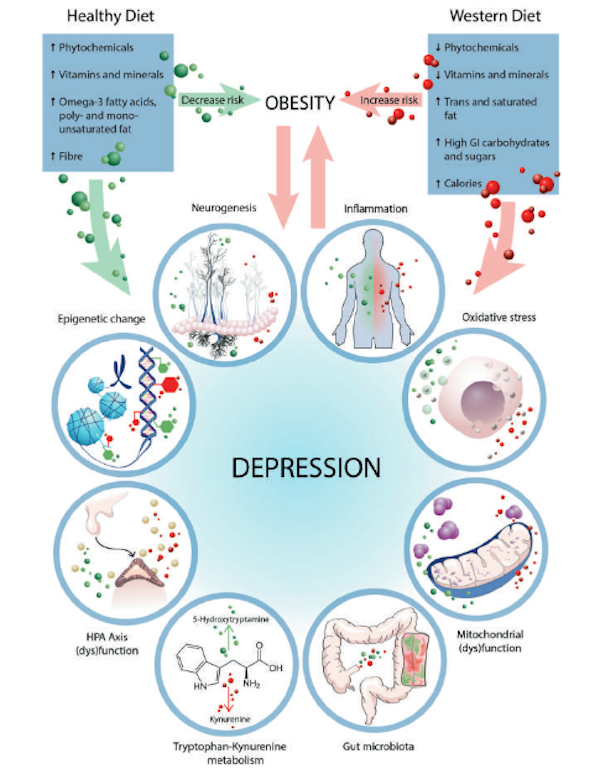
Dr. Wolfgang Marx: “Diet and depression: exploring the biological mechanisms of action”. Overview of the role of diet quality on implicated mechanisms of depression. This figure details the identified pathways implicated in depression that may be amenable to dietary manipulation. The black arrows represent increased or decreased consumption related to the opposing dietary patterns. Green arrows represent a posited beneficial modulation of the included pathways while red represent potentially detrimental modulation.
The role of food processing on mental health is not yet fully understood, despite many high-quality randomized studies showing the beneficial effect of a nutrient-dense diet on depression, according to Melissa Lane, a researcher at the Food & Mood Centre at Deakin University in Australia.
There are some hints, however.
One focus of research is on how poor gut health might impact the brain. Diets that are high in ultraprocessed foods are typically low in fiber, which is mostly found in plant-based foods like whole grains, fruits, vegetables, nuts, and seeds. Fiber feeds the beneficial bacteria in the gut, and is also necessary for the production of short-chain fatty acids that play a role in brain function. Dr. Wolfgang Marx, the president of the International Society for Nutritional Psychiatry Research and a senior research fellow at Deakin University, explained that individuals with depression and other mental disorders have a less diverse composition of gut bacteria and fewer short-chain fatty acids.
Chemical additives in ultraprocessed foods might also have an impact on gut flora. “Emerging evidence — mostly from animal studies, but also some human data — suggests that isolated nutrients (like fructose), additives such as artificial sweeteners (like aspartame and saccharin) or emulsifiers (like carboxymethylcellulose and polysorbate-80) can negatively influence the gut microbiome,” Dr. Marx said. And, according to researcher Dr. Lane, poor gut microbiota diversity, as well as a diet high in sugar, may contribute to chronic inflammation, which has been associated with a variety of mental and physical issues. “Interactions between increased inflammation and the brain are thought to drive the development of depression,” she said.
Dr. Frank Hu, a professor of nutrition and epidemiology at the Harvard T.H. Chan School of Public Health, suggested that the link between highly processed foods and mental health might work both ways. “Diet does influence mood, but the reverse is also true,” he said. “When you get stressed, anxious or depressed, you tend to eat more unhealthy foods, in particular ultraprocessed foods that are high in sugar, fat and chemical additives.”
How to Recognize the Villain
It’s simple — read food labels.
The best way to identify ultraprocessed foods is to read the labels printed on the packages and cans. If you can’t pronounce what’s written on them, have no idea what the words mean, and would not use such ingredients in meals that you prepare at home — then it’s likely that what you’re holding in your hand is an ultraprocessed food.
You need not resort to ultraprocessed foods to make cooking easier and palatable. Products such as canned beans, frozen vegetables, precooked brown rice or canned fish are all shortcut ingredients that have a place in a healthy diet, provided there aren’t any industrial items on the ingredient list. If you can identify the added ingredients, such as herbs, spices, salt or cooking oils, that’s an indication that you’re not harming yourself.
Common Ultraprocessed Foods and Their Substitutes
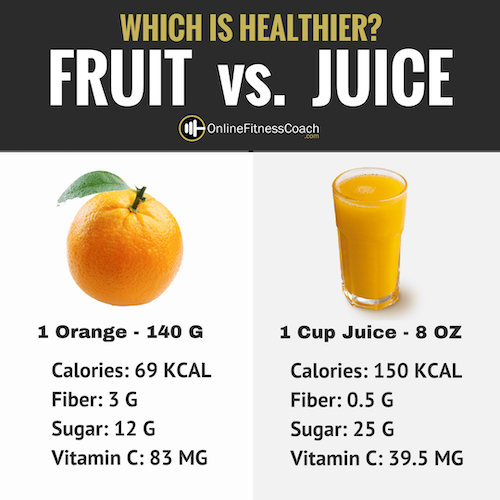 As you’ve been reading, ultraprocessed foods are typically characterized by their high levels of industrial ingredients, additives, and processing methods. None of the following list of ultraprocessed foods will surprise you, but perhaps some alternatives will inspire you to choose a substitute for those ultraprocessed foods you currently consume.
As you’ve been reading, ultraprocessed foods are typically characterized by their high levels of industrial ingredients, additives, and processing methods. None of the following list of ultraprocessed foods will surprise you, but perhaps some alternatives will inspire you to choose a substitute for those ultraprocessed foods you currently consume.
Soft drinks, energy drinks, and sports drinks: These beverages are high in added sugars and can lead to weight gain, type 2 diabetes, and other health issues. Healthier alternatives include water, herbal tea, or freshly squeezed juice without added sugar.
Pre-packaged snacks and sweets: These include candy bars, potato chips, and other snack foods that are high in calories, unhealthy fats, and added sugars. Healthier alternatives include fresh fruit, vegetable sticks with hummus, nuts, or seeds.
Fast food and convenience meals: These are often high in calories, unhealthy fats, and sodium, and low in essential nutrients. Healthier alternatives include homemade meals made with fresh ingredients, such as whole grains, lean proteins, and vegetables.
Processed meats: These include sausages, hot dogs, and deli meats that are often high in salt and additives that are linked to increased risk of cancer and heart disease. Healthier alternatives include fresh, lean meats or plant-based protein sources such as legumes or tofu.
Sweetened breakfast cereals and pastries: These are often high in added sugars and refined carbohydrates, which can lead to weight gain and other health issues. Healthier alternatives include whole grain cereals with no added sugars, oatmeal with fresh fruit, or whole grain toast with nut butter.
Frozen meals: These meals are often high in sodium, unhealthy fats, and additives, and can lead to weight gain and other health issues. Healthier alternatives include homemade meals made with fresh ingredients, such as whole grains, lean proteins, and vegetables.
It’s important to note that reducing ultraprocessed foods in the diet is not an all-or-nothing approach, and small changes can have a big impact on overall health. Gradually swapping out ultraprocessed foods for healthier alternatives can lead to a more balanced and nutritious diet.
Take the Quiz!
This quiz is based on the NYTimes quiz: Do You Know How to Spot Foods That Are Ultraprocessed?. If you are a NYT subscriber, you can see it here.
The quiz is based on a four-tiered system called the Nova scale that scientists often use to determine the degree of food processing:
- Group 1 consists of unprocessed and minimally processed foods like vegetables, legumes, chicken, milk, wheat or corn flour.
- Group 2 includes processed culinary ingredients like vegetable oils, butter, sugar and iodized salt.
- Group 3 is processed foods that are industrially manufactured but still made from recognizable ingredients, like canned vegetables, dried or smoked meats or fish and traditionally made cheese
- Group 4 is ultraprocessed foods, which are food formulations made using industrial processes and ingredients you wouldn’t find in a home kitchen.
Here’s the bottom line:
Reducing your consumption of ultraprocessed foods happens when you focus on ingredients and endeavor to only buy a packaged or ready-to-eat food that resemble something you might have in your kitchen, and made with ingredients you use in your own cooking.
Last Updated on February 7, 2024 by Joe Garma

